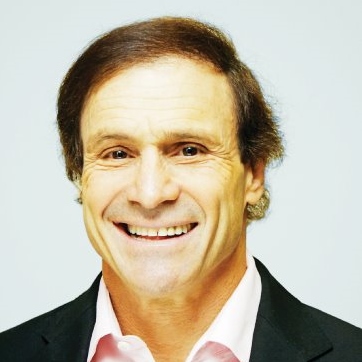click to dowload our latest edition
CLICK HERE TO SUBSCRIBE TO OUR NEWSLETTER


Published
5 years agoon
By
adminMARC LUBNER
Pondering Mandela’s values of conscious leadership, we create our own additional thoughts about living a life of service for others.
Mandela Day has been mooted as a day of doing good deeds for others. Many South Africans are motivated to spend 67 minutes consciously engaged in activities that are about giving. However, Mandela Day achieves a greater purpose insofar as it creates the opportunity to cross lines of diversity. Corporates bring staff members together in acts of random kindness and in doing so, cultural, racial, and religious barriers are diminished as teams pull together.
It’s critically important for our Jewish community to showcase how we can be a light unto the nations by using this day to integrate with various other communities in activities that promote a sense of well-being for the receiver, and the parties who are giving.
The economic woes of our country are a direct result of deficiencies within our system. High unemployment is a result of poor productivity. However, productivity is influenced by factors such as the majority of South Africans still living in townships with limited public transport to places of work. It is influenced by the fact that people live in areas with hopelessly inadequate resources, so when adults go off to work, they don’t know that their children are being cared for in safe environments, with adequate health and educational support.
Mandela Day creates an opportunity for those who are insensitive to such conditions to cross over Louis Botha Avenue into townships like Alexandra, to see just how difficult living conditions are for residents in that community. Equally, visits to Alex on Mandela Day create the opportunity for insight into the magic of the people living within these communities.
Too often, we simply discredit township communities because they might be financially impoverished, without realising the colour, creativity, and humour that exists within these communities. In most instances, people end Mandela Day with a sense of awe and respect for the majority, who create social structures and a functional network in spite of huge infrastructural gaps.
It’s important that Jewish parents use Mandela Day to teach their children about the gift of gratitude. Often, I see how children from fortunate homes go home at the end of the day with a sense of appreciation and an awareness for the simple fact that they have food in their fridges, and running water in their toilets.
I don’t think our community realises just how good our lives are in relative terms. Too often, I hear people bemoan the lack of financial support they get from the Chevrah Kadisha. Comparatively, a youngster attending an Afrika Tikkun centre is filled with song and laughter simply because he/she is given one or two basic meals, some home and work support, and the knowledge that somebody cares enough to offer some momentary love.
We celebrate many Jewish holidays where it is beholden on us to practice acts of tzedakah (charity). Invariably, we do this through contributions made to members of our own society or to community support programmes.
Mandela Day should be a day where we realise that we have an obligation to care beyond the needs of our own community. This is not to discount our community for a minute, but to recognise that we are fortunate to be able to support our own and other South African communities.
According to author Yuval Harari, homo sapiens is the dominant species on the planet as a result of its ability to form social pacts and work in unison. The world is changing, and the age-old boundaries which people use to define their associations are being redefined. The internet says that we are no longer bound to associations based on geographical limitations. Common purpose now bonds individuals together on themes such as dealing with environmental issues to forming political parties.
South Africans can be pro or anti Brexit, and through social media, can participate in ways that influence the views of others across the globe. Members of the Jewish community can align with any one of an array of political parties without necessarily negating their faith. It’s therefore imperative that as a community, we show a sense of responsible kindness in defining who we are, and what we stand for.
Mandela Day gives us the opportunity to do this, not merely by putting money into a yellow arc, but by consciously giving thought to the outcomes we would like to achieve. We need to consider how we might get involved in bringing about meaningful change. Mandela Day should be a day where our community gives thought to actions and deeds directed at using our influence to make life better for those around us, in a sustainable manner.
We can resolve to greet those pesky street beggars, recognising them as fellow human beings, irrespective of whether we support giving cash as a donation. We can ask ourselves how Mandela would respond to the plight of children who are in desperate need of surgery, but whose parents can’t afford medical aid.
Instead of thinking about impoverished township communities, we can recognise and respect the efforts that individuals within these communities make to build lives of dignity, and we can find ways, whether through mentoring on an ongoing basis or co-funding a bursary – or a variety of other methodologies – to uplift our fellow South Africans.
There is a wonderful expression that says, “A rising tide lifts all boats.” In giving, we become the ultimate recipients.
Mandela Day also provides an interesting umbrella, in which this awareness can be unlocked without individuals feeling that they have to be beholden every day thereafter. It’s accepted that life returns to ‘normal’ after Mandela Day, but hopefully the definition of what’s normal changes in a positive and ever more conscious way as a result of the magic of the “Madiba moment”.
